In the "real" world, we would probably have no issue trying to keep our little ones away from screens and kids' tablets (we wish), but bear in mind, screen time doesn't have to be devoid of educational value; the best apps for toddlers can help keep your tiny tots entertained and happy, while stimulating their brains at the same time.
If you're a parent (or nana and grandad), then you probably know the battle of purely wanting to finish the washing up, or have brunch in your local restaurant, peacefully, without a shrieking two-year-old demanding all your attention and apps for toddlers can provide that bit of peace and quiet. Many of them are easy to use and don't require Internet connection, making them ideal for car journeys.
Best apps for toddlers at a glance
Does your toddler need apps?
We all know that generations of children have survived without technology and apps, and so no toddler absolutely needs apps, however, in today's digital world, letting our children begin to learn how to use apps and devices, is a good thing, because screentime isn't always bad. Apps can be educational and support learning, such as helping with early letter or word recognition or counting. They are also useful entertainment on long journeys or when parents need to get on and do something. As long as screen time is limited, then apps can be beneficial for toddlers.
Types of apps for toddlers
There are lots of apps available for toddlers, which might incorporate characters from their favourite TV show, or book. Most apps will also have an educational aspect to them and encourage counting and develop literacy. Other apps might encourage colour recognition, teach children the names and sounds of animals and most will be interactive. Games are always popular with young children, especially ones where they are challenged to do something, however, apps can also include puzzles, stories, colouring, songs, and facts.
How to choose the best app for your toddler
Things to consider when choosing an app for your toddler include:
Purpose: Why do they need an app? Is it for entertainment or education? Perhaps it is a combination of both.
Recognisable characters: Do they have a favourite character that might appeal to them?
Age suitability: Ensure that the app you choose is appropriate for your child's age. An app which is too tricky could be frustrating, whereas a simple app will become boring.
Child's interests: What does your child enjoy? Do they like puzzles or games? Maybe they like to listen to stories or colour. Choose something that includes activities you know will engage your child
Cost: Is the app free? Check if there are in-app purchases, or a subscription free. A free app can be great, but it might mean there are lots of ads which will be annoying for you and your little one.
Device: Will it work on your device? Think about if your toddler will be using the app on your phone or an iPad and check the app is suitable for the device you have available.
How to use toddler apps
Toddler apps can be used on any compatible device, but do check that they will work before you are downloading them. Also check storage because some kids' tablets might be low on storage and an app won't run very well as a result.
Use toddler apps as a source of entertainment and education. We know as parents that you need time sometimes to get work done, or the washing, or cook dinner, and giving your little one an app to entertain them can be really helpful, even better if it is educational. They are also useful on long car journeys. However, you can use them to help toddlers develop skills they might be struggling with, for example, if they are finding counting difficult then maybe playing with an app will help. Similarly, an app can support learning colours and shapes and even start teaching children reading and word recognition.
Choose activities you know your toddler will enjoy, such as puzzles, or games, and they will start learning without realising, instead thinking they are simply allowed some screen time. Playing an app together is also another nice way to use toddler apps, your toddler will love sitting with you to play a game together, or learn about different animals.
Toddler apps safety
While the NHS doesn't stipulate an exact number of hours for screen time, they do suggest that toddlers should have no more than one hour per day from age 2 - 4 and that children under 2 do not need screen time. It is advisable to have screen free days too for all children. Kirsty Carroll, a parenting expert at Kiddies Kingdom, suggests, "for infants up to 18 months, it’s best to avoid screen time at all during these early years of cognitive development. Between 18 and 24 months, I would recommend using screen time for mainly educational content and ensure a carer is present. Children aged 2 to 5 can benefit from non-educational screen time limited to about one hour a day screens away." In addition she advises the following to keep your little one safe when using their toddler app, or any screen time:
"•Keep screens off during family meals and outings to encourage interaction and bonding.
•Familiarise yourself with and utilise parental controls to manage screen usage effectively.
•Avoid using screens as substitutes for attention or to quell tantrums.
•Establish a screen-free period before bedtime, removing screens from bedrooms to promote better sleep routines.
•Teach your child about online privacy and safety.
•Encourage healthy use of screens for educational enrichment, creativity, and connecting with friends and family."
It also important to consider the impact on your little ones eyes when using their toddler app. Nimmi Mistry, a professional services optician at Vision Direct, says, "Computer Vision Syndrome (CVS), also known as digital eye strain or digital visual syndrome (DVS), is a term given to a set of symptoms that can arise from using digital devices for a long time. Looking at a screen that emits intense light while having to focus and defocus at different distances requires an accommodative effort for many hours at a time. This, in addition to glare from screens, can be harmful to kids’ eye health." She continues, "Children are particularly susceptible to CVS due to their developing visual systems and often lack awareness about their screen usage habits. That excessive amount of screen time can result in potentially serious eye health problems."
Nimmi says that eye problems resulting from screens include:
"Eye fatigue: Due to the prolonged accommodative effort demanded of our eyes without sufficient breaks, this can lead to eye fatigue which presents as blurred vision and tired eyes.
Dry eye: Dry eye is one of the most common symptoms of CVS. When we use a screen we tend to blink less, which means your eyes get less lubrication, end up with eye dryness and leave them feeling sore and tired.
Headache: The intense light and the pressure to which our eyes are subjected continuously can cause more headaches which can make focusing or going about daily tasks a little more difficult.
Photophobia: CVS can also be responsible for the development of hypersensitivity to light, both natural and artificial - not something you want as we head into the longer days of summer.
It’s also important to remember that screens emit blue light which interrupts and reduces the production of melatonin, the sleep hormone. Extended screen exposure can therefore cause disruptions to sleeping patterns and quality. Lack of sleep is something that can also negatively impact eye health. "
If your little one uses their toddler app sensibly and for short periods, then it can have educational benefits. However prolonged use is not recommended. It also important to ensure your little one's online safety with appropriate parental controls and passwords to ensure they can't access inappropriate content.
How we chose and tested the best apps for toddlers
Our mum testers assessed the best learning apps for toddlers based on usability, design, quality and value for money, as well as how engaged the children were when using the apps.
Find out more about how we test products for Mother&Baby on our 'how we test' page.
While it’s vital to reduce and manage screen time, there are so many kids' video games and children's games for tablets or mobiles, including digital literacy apps and counting games that will help give your child the boost in their imaginative skills and communication.
We have chosen our favourite best apps for infants and young children, from different characters like animals and Elmo, with some that will encourage your little one how to identify colours and sounds. And, with most of them free you will never have to worry about its cost, giving you more time to tick off and do the tasks on your to-do-list.
The best educational apps for toddlers 2024:
1.
ABC Mouse
Best toddler app for reading

www.abcmouse.com
ABC Mouse is one of the best educational apps for kids, and we love that it encourages early reading, from pronouncing the names of each letter, with the sounds they represent. Reviewers enjoyed how their little one can gradually be able to identify words, starting with a few and upgrading to paragraphs. It also includes sentence structure, punctuation, parts of speech, and practice writing.
One review said: "Love the progressive activities! I don't have to take the time to search for activities for my 3-year-old, and my 5-year-old just follows along when she's playing by herself... So I know everyone's doing the right things for their ages!"
Pros
- Encourages early reading
- Activities are progressive and age appropriate
Cons
- Pages are sometimes slow to load, or they are blank when loaded
| Age suitability: | 2-8 |
| Availability: | ABCmouse website<br>play.google.com<br>Apple.com |
- Step by step learning
- Maths, reading and writing
- Includes games and books
- printable features
Best toddler app for counting numbers
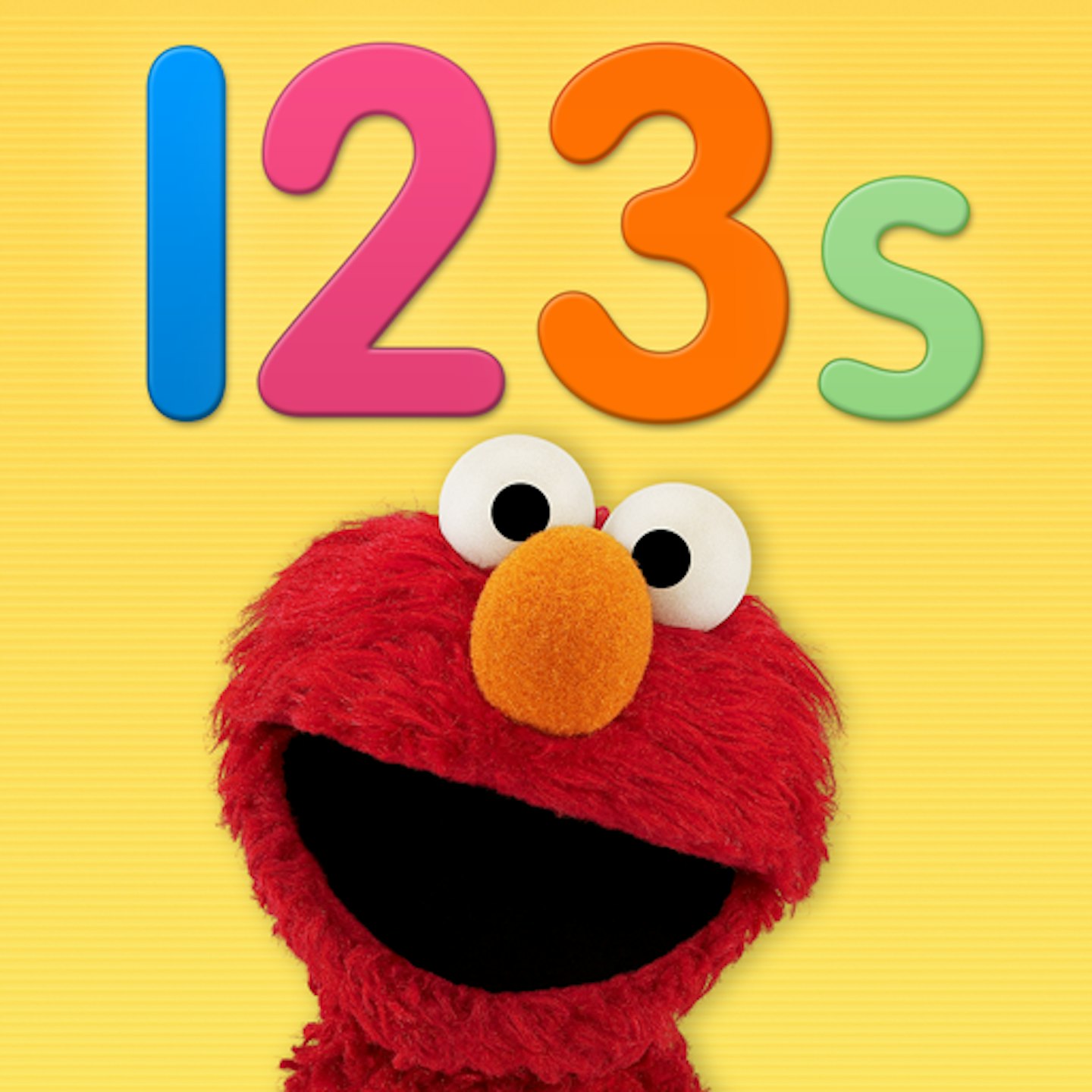
www.sesamestreet.org
When we think of the best free apps for toddlers, Elmo Loves 123s comes to mind. Learning numbers can be a little tricky for toddlers, but with this clever app, it will help put them onto the path of counting numbers and maths. Reviewers like that the free preview will get your child confidently starting on their 123's, and allow you to download the full package to get some exciting games, videos and numbers from 1-20. We love that you can watch Sesame Street clips, as well as unlocking surprises and play games.
One review said: "Thanks for creating a fun and intuitive app. This has kept our daughter engaged, happy and on-top of her numbers throughout."
Pros
- The app is free (but there are in-app purchases available)
- Encourages confidence with numbers
Cons
- Some reviewers were disappointed that you only see Elmo at the start and then just hear his voice
| Age suitability: | 4+ |
| Availability: | App Store, Amazon, Google Play |
- Play number games
- Watch classic Sesame Street clips
- 123s Tracker for adults to see what children are learning
- Trace numbers to unlock surprises
3.
Beck and Bo
Berst toddler app for objects
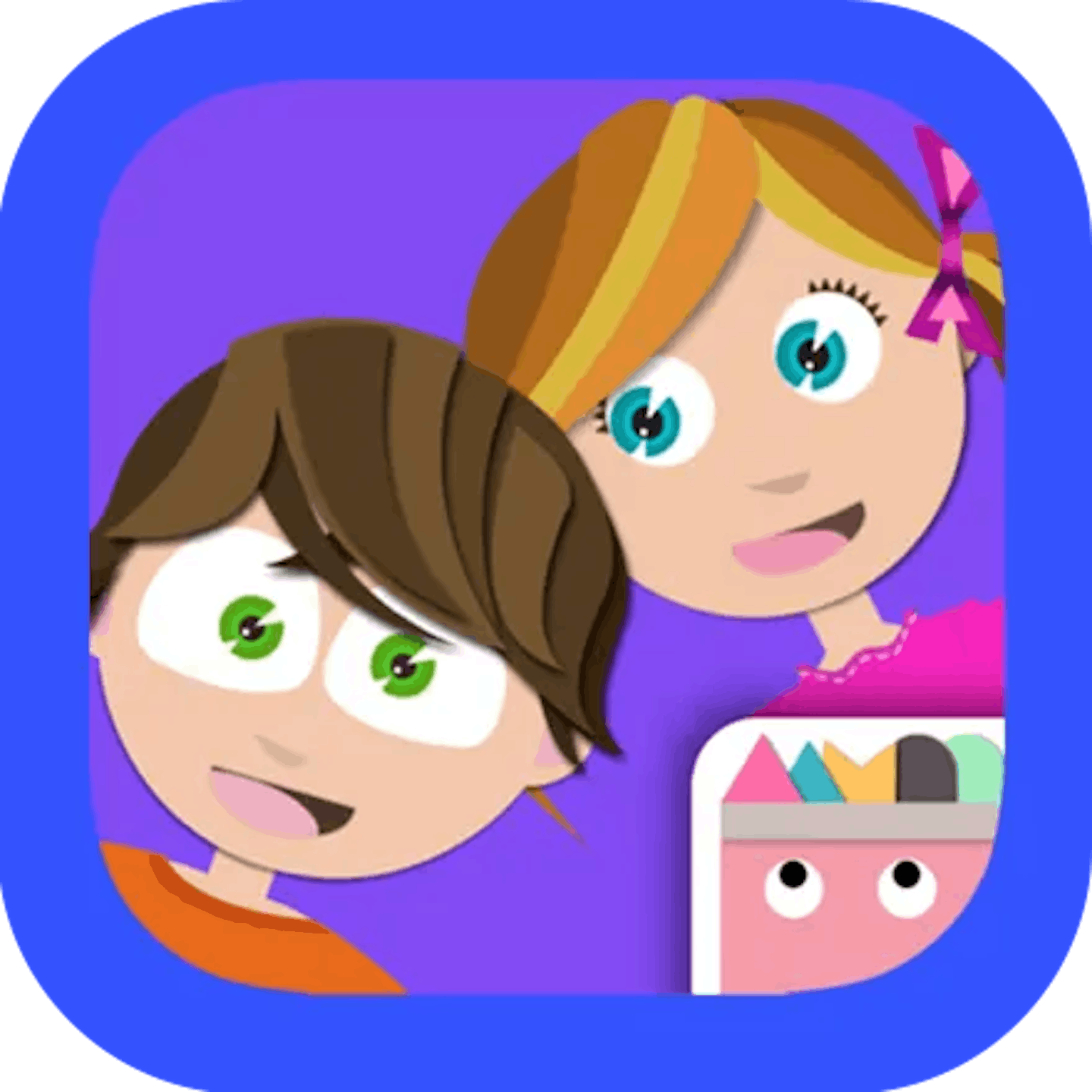
www.avokiddo.com
This bright and colourful animated app lets kids place characters in different scenes, and we love how it encourages their imagination. From real-life looking locations, like the corner shops to exotic locations like the zoo, your little one will be able to use their own initiative, and tap on items while learning new phrases.
One review said: "My daughter love this cute little game which allows her to move and interact with elements in a variety of scenes; all the while learning what each is. The graphics are super cute with some very cute simple annimations. They were thoughtful of parents too, hiding the settings behind a protected area."
Pros
- Great for independent play and encouraging imagination
- Reviewers thought the graphics were great, really bold and bright
Cons
- Some reviewers said there is a lack of updates and fresh content to keep little ones engaged
| Age suitability: | 4+ |
| Availability: | Android, iOS, Amazon |
- Learn words through exploration
- Encourages creative thinking and puzzle solving skills
- Develop fine motor skills
- Develops cause and effect
Best toddler app for learning colours
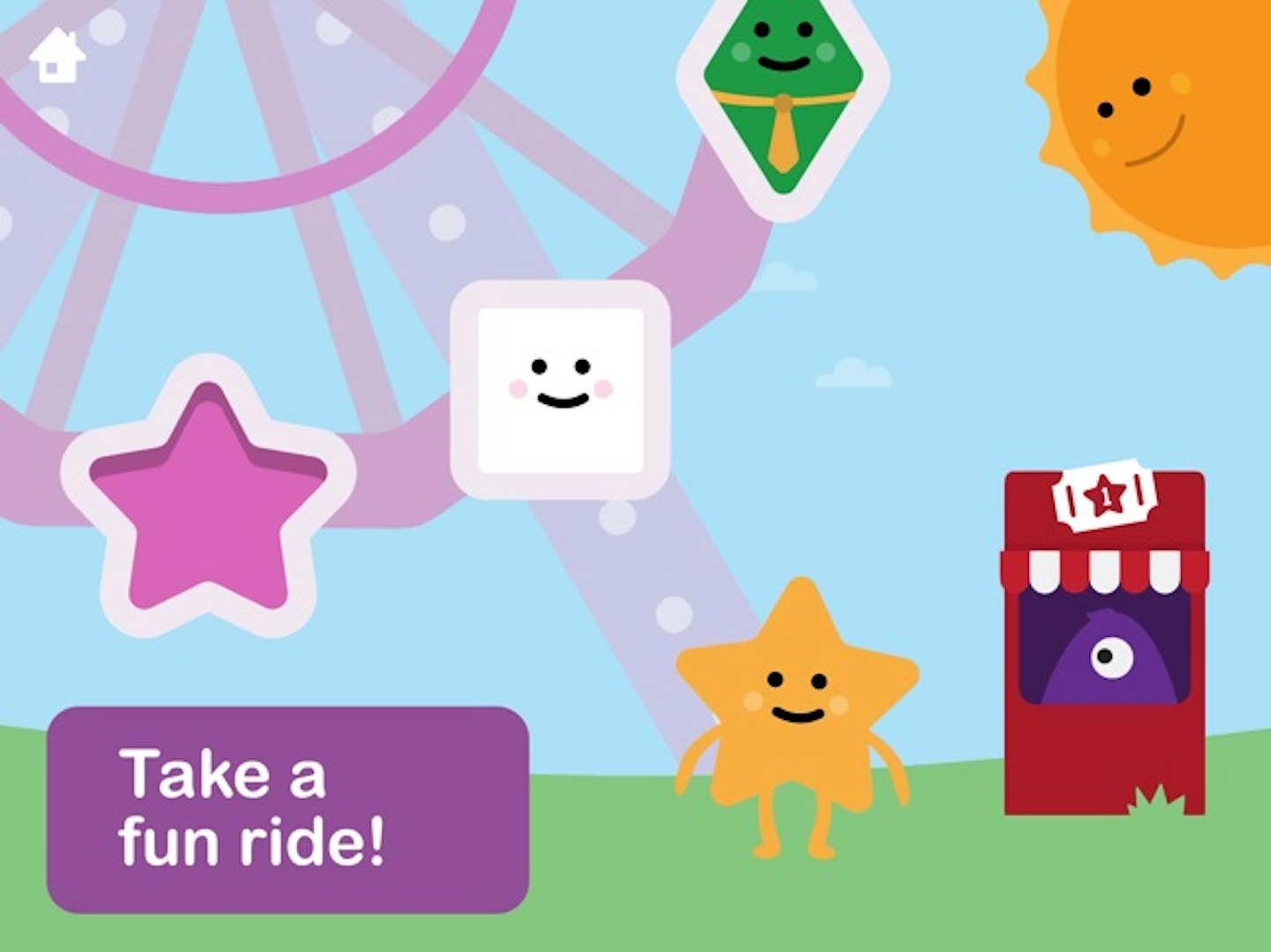 Apple App store
Apple App store apps.apple.com
This app will teach your toddler new shapes, colours, pairing and sorting in this preschool-friendly and entertaining app, which we love. Reviewers were impressed how kids can challenge their brains while identifying pattern recognition and playing some fun games.
One review said: "My son is two and I’ve scoured the internet trying to find good apps to help him learn. I read about this app I forget where, and when I found it on the App Store I wasn’t sure about spending the money, but figured what the heck. Well he has totally taken to this app, and searches for it on the iPad. It’s just little touches like when he touches the Sun it goes oOo :). He’s learning his colors and shapes, and enjoying it!!! I just bought the whole bundle, and hope the rest of this developers apps are also good!"
Pros
- Supports learning of colours and shapes
- Interactive and engaging sounds and colours
Cons
- There is no option to skip or repeat games, which reviewers felt was needed when activities were a bit tricky for a child
| Age suitability: | 4+ |
| Availability: | Apple |
- Encourages learning of colours and shapes
- Great sound effects
- 12 challenges
- No in-app purchases
- Play activities flow from one to the other
Best toddler app for identifying animals
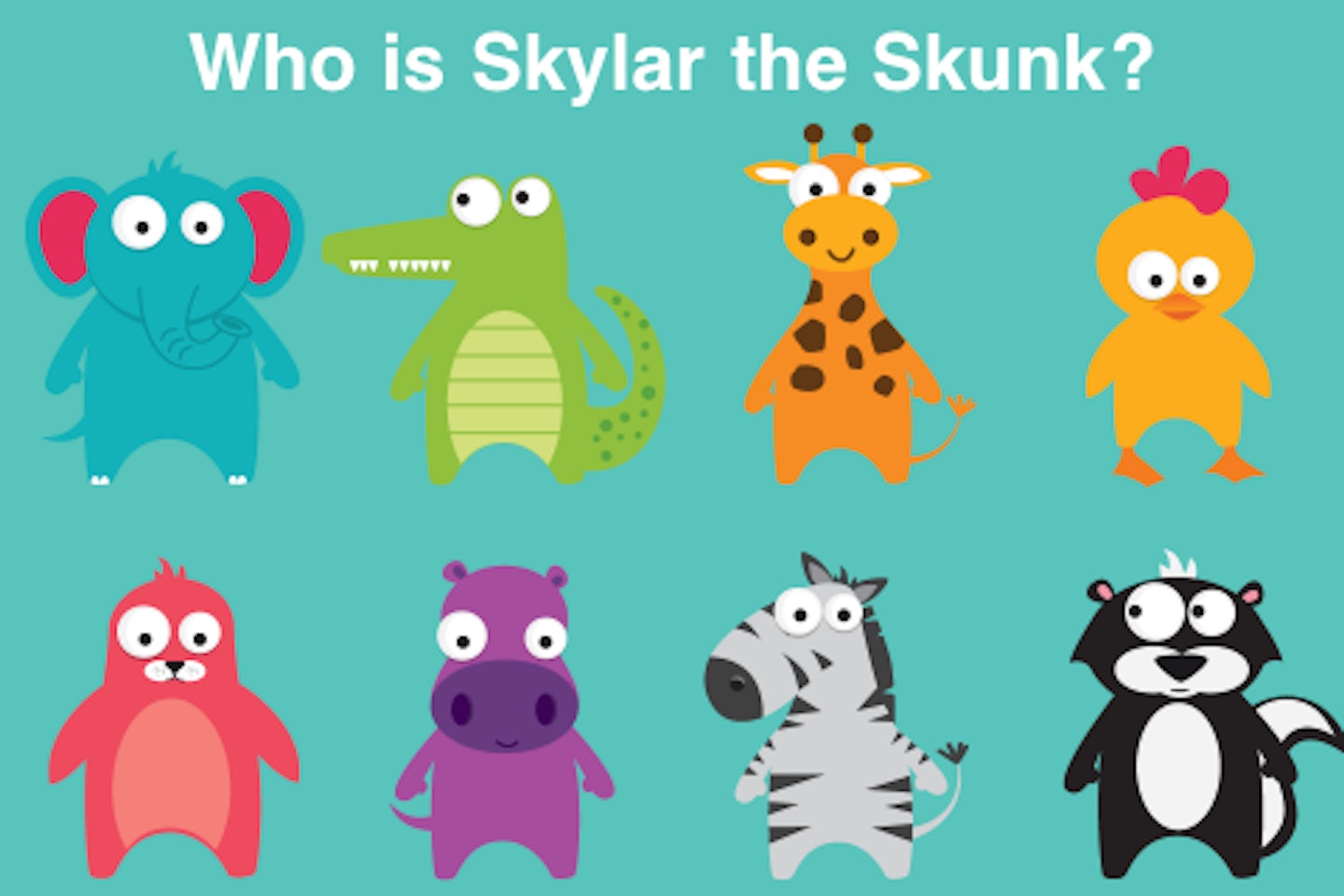
www.duckduckmoose.com
Is your little tot a lover of animals? Come and play at the Peek-a-Zoo! Through a range of fun animal activities, kids will learn and recognise animals, emotions, actions, sounds, and colour. We love how this is a fun, musical app which has lots to teach little ones too.
One review said: "My 3 year old twins love this app! It is very entertaining, silly, and educational at same time."
Pros
- Musical and fun it will entertain toddlers
- Helps teach about animals and also emotions
Cons
- Reviewers feel it lacks content and could feature more questions to challenge little ones
| Age suitability: | 4+ |
| Availability: | Apple Store |
- Identify animals
- Helps with learning about emotions
- Lots of sounds and music
- Educational and entertaining
Best free learning app for kids
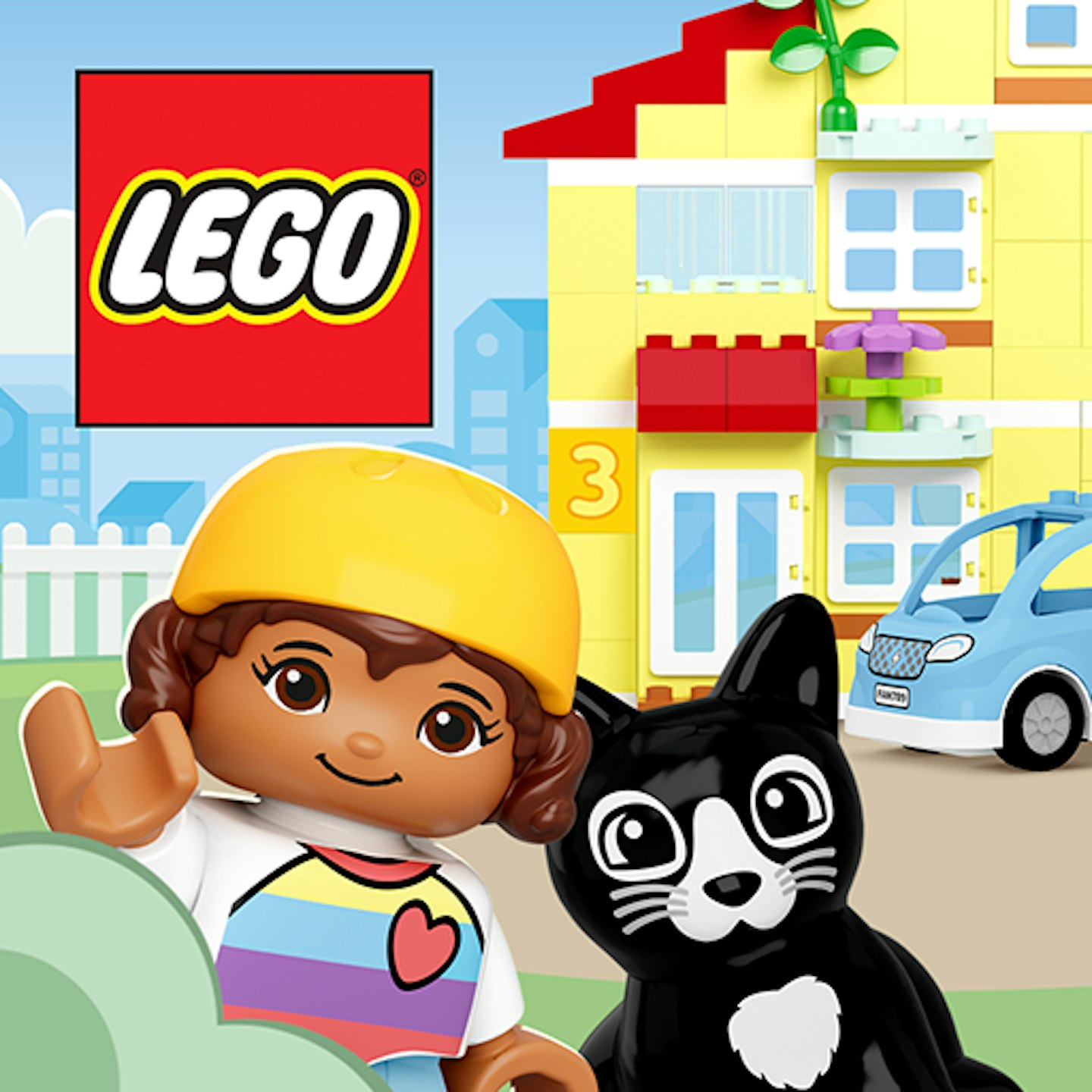
Lego Duplo World is one of the best apps for 2 year olds all the way up to adult age (we know us parents get enjoyment out of these games too!) Jam-packed with fascinating play experiences featuring animals, buildings, exciting vehicles, and trains to help your child's imagination and creativity through fun learning. Your child can explore each scene to figure out what’s in it, discover how everything works and—of most importantly—play with it in 3D. Plus we love, how it teaches little ones about looking after a pet and caring for others.
One review said: "This app is simply fantastic! My child loves them and so do I. The variety of game scenes, the promotion of early childhood skills and the opportunity to play together with my child make this app a real treasure. In addition, the regular updates and new content are a nice surprise."
Pros
- Large variety of games and activities
- Stimulates creativity because children can build using 3D bricks
Cons
- Some reviewers thought the games were a bit short and there were too many ads
| Age suitability: | All ages |
| Availability: | Amazon |
- A wide variety of games
- Teaches children how to care for a pet
- Includes building games using 3D bricks
- Develops maths skills
Best toddler app for learning the alphabet
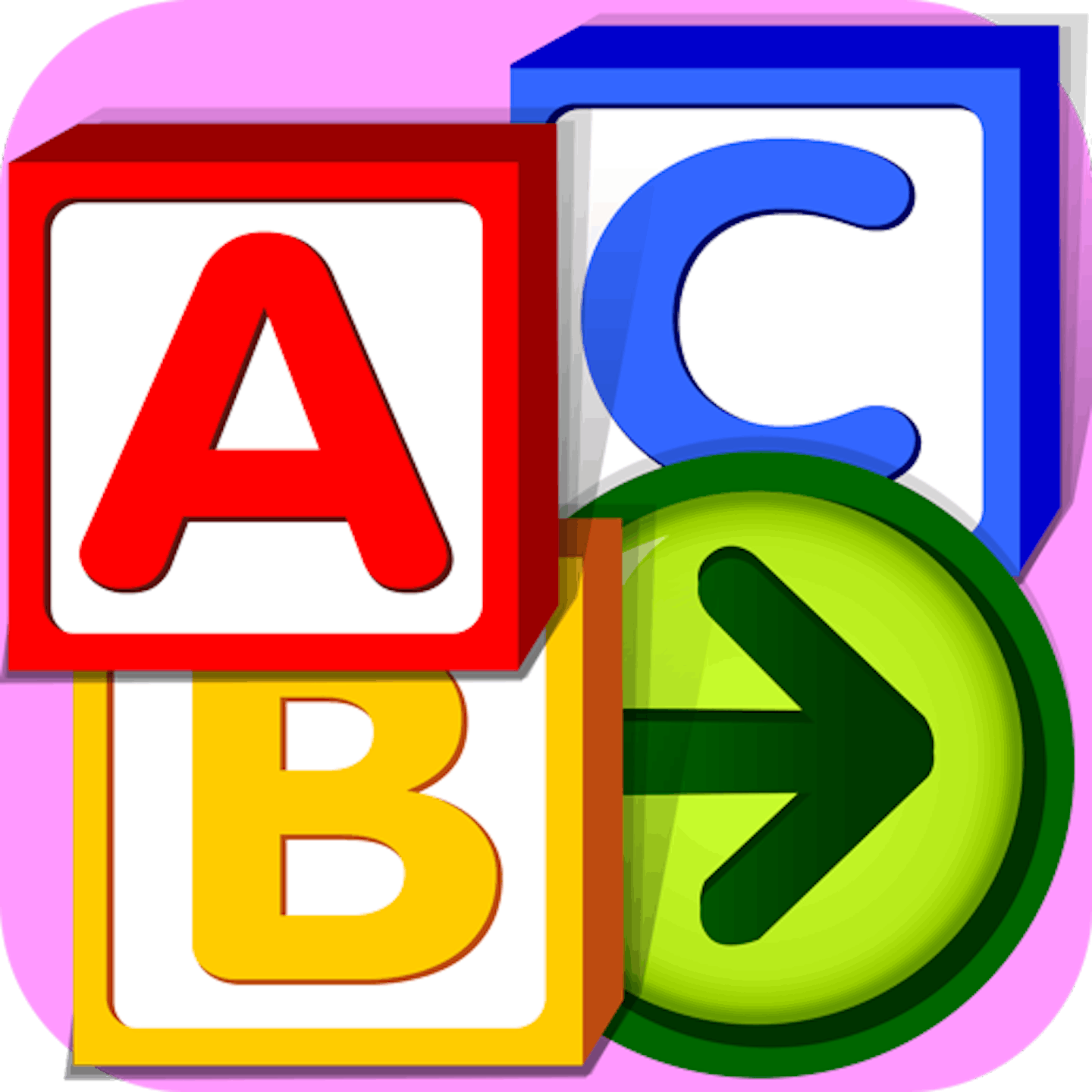
Your child will be able to learn and recognise letters while forming the skills they need to become bold and comfortable readers, which impressed reviewers. We like that it's recommended for all ages and anyone who needs help learning the alphabet, but we think it's particularly one best apps for 3 year olds, to get them ready with basic skills before school.
One review said: "I’ll start by mentioning that we are against tablet games and apps and do not allow regular screen time. But this app is amazing!! Must have. It taught my son the alphabet after playing it maybe 3x for 15 min each time. And he’s getting better at number recognition and phonics too. We let him Use this app in the car for longer trips, or he sometimes asks to use it st his chalk board and practices writing the letters along with the app."
Pros
- Great for learning letters and the alphabet
- Teaches children tech skills such as how to use an app or device
Cons
- Reviewers thought it could be more interactive
| Age: | 2+ |
| Availability: | Amazon |
- Great for teaching the alphabet
- Good for a range of ages
- Various activities to do
Best toddler app for sounds
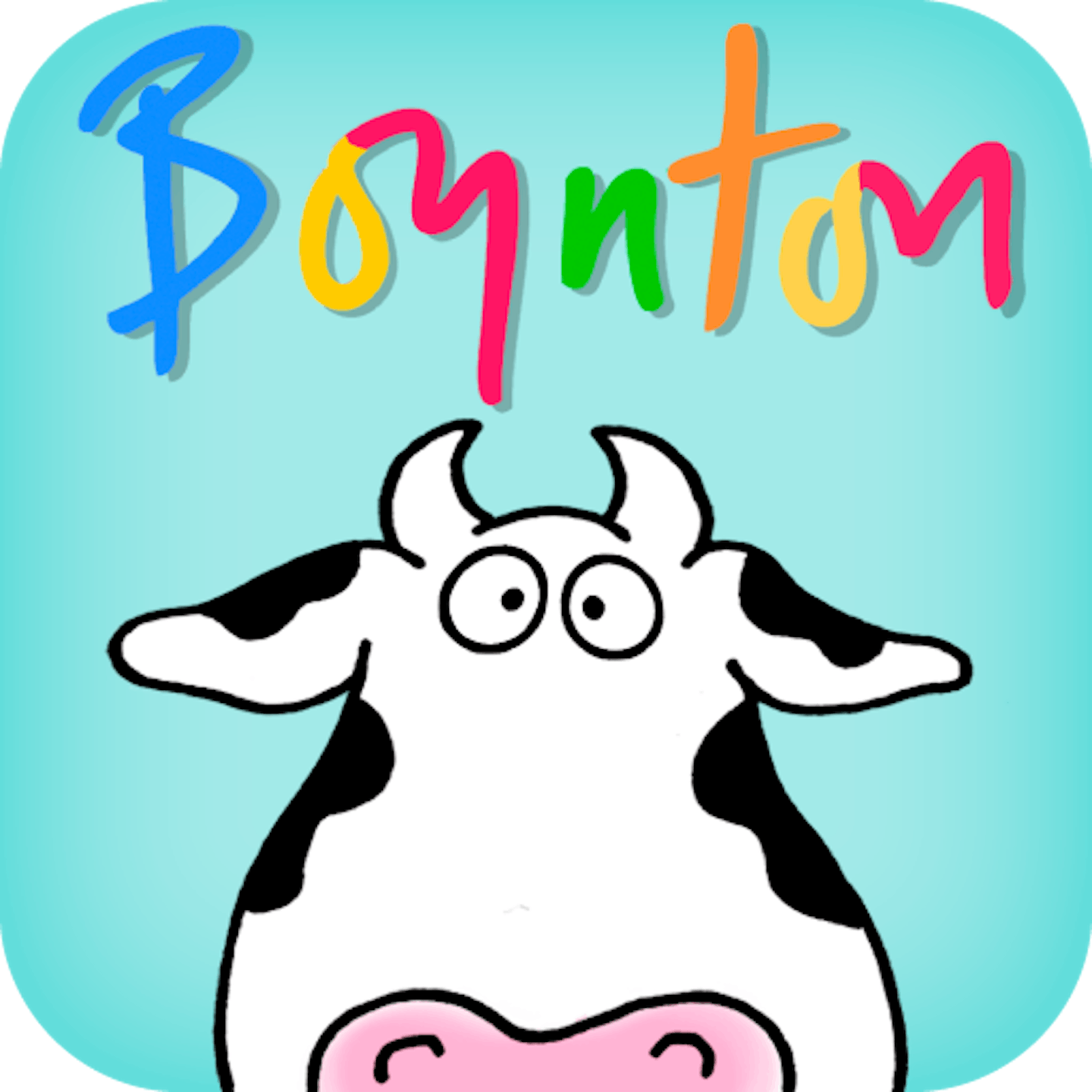 Google play
Google play apps.apple.com
Epic children's book writer Sandra Boynton is known for her many board books for little ones, and we love that this app brings one of your favourite books to life. With this app, her Moo, Baa, La La La! book involves interaction, and animal sounds, while magically tapping the screen to turn day to night.
One review said: "My kids have loved this book for a long time! There are many interactive elements of it!"
Pros
- Encourages reading
- Reviewers thought the app was very engaging
Cons
- Some reviewers said the sound effects don't always work
| Age suitability: | 4+ |
| Availability: | Apple Store, Google Play |
- Engaging books
- Sound effects
- Encourages reading
- Suitable from 4 years
9.
Baby Games
Best toddler app for movement
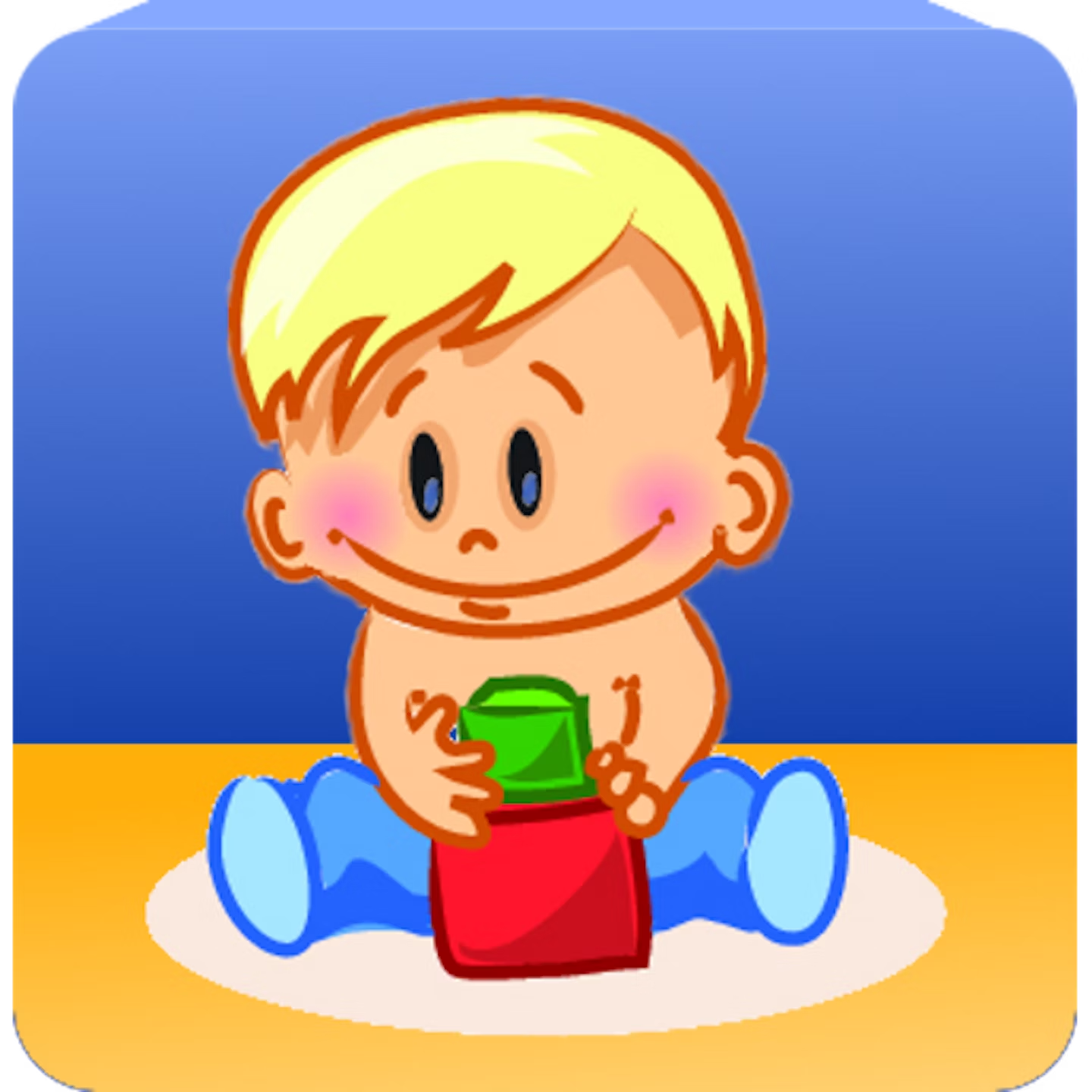
Baby Games is a fun collection of fun toddler games to entertain your baby. Included are bursting the balloons, playing music until jack pops up, touching a mole before it disappears, listening to animal sounds, car noises, planes and trains.
One review said: "Very entertaining, even for a 1 year old. I like that they made it hard to back out of the game so little ones can play without mom having to re-enter the game (because of little fingers accidentally closing it).. The balloon pop is her favorite (she is 12 months old)! Starting out, little ones often just keep their hands on the screen. This doesn't affect the game, and the balloons popped as they rose up to her fingers. She eventually figured out how to pop them! Success! Great little App!"
Pros
- Good for younger children, even babies
- A selection of interactive games and sound effects too
Cons
- Doesn't hold children's attention for very long
| Age suitability: | All ages |
| Availability: | Amazon |
- Good for entertaining babies and toddlers
- Interactive
- A selection of activities to choose from
FAQs
How much screen time should my child have?
It's important to mange your child's screen time, even if they are on educational apps.“By its very nature, the internet provokes what we call a ‘Butterfly mentality’; where the brain flits from thing to thing without having to focus for very long,” says Martina Barrett, Managing Director at VAKS: Tuition & Revision Centers.
"When children are constantly on iPads and smartphones, it’s no surprise they find it increasingly difficult to sit in a classroom and concentrate for up to an hour at a time. We are finding that children become tired quicker, their engagement with printed texts is not as great, and even their motor skills are suffering from the constant use of touch screens as opposed to toys and tools that require manual manipulation.”
Are educational apps good for toddlers?
Nowdays, there seems to be an app for everything, including colouring games and apps for toddler speech delay to name a few. Educational apps can be a great way to teach your child skills such as counting, shape-sorting, writing and colour recognition, as they turn the information into games and interactive formats. Many children's games apps feature popular characters from books and TV shows, which can also help to engage your tot.
However, apps don't replace human interaction and should only be used to reinforce learning, rather than be their only source of information. Chat to your child and use books, props and activities to teach them life skills - lead by example.
How to keep your toddler from exiting an app
It's not only frustrating when your little one exits an app for the hundredth time and gets you to open it again - it can be dangerous too (for example if they're using your mobile and start calling someone or manage to purchase something without your consent). For Android you can use a feature called Pin Screen which allows you to lock the screen so your little one can't exit without a passcode. For Apple devices you can use AppLocker, or on some Apple devices you can click the side button which starts guided access. It is a good idea to lock an app, both for safety but also to prevent frustration for everyone.
Mummy to a little girl, Adejumoke Ilori is Commercial Content Writer for Mother&Baby. With a BA hon in Creative Writing, she has worked for digital platforms, where she has empowered women from the inside and out, by sharing real life stories based on relationships, loving yourself and mummyhood.
